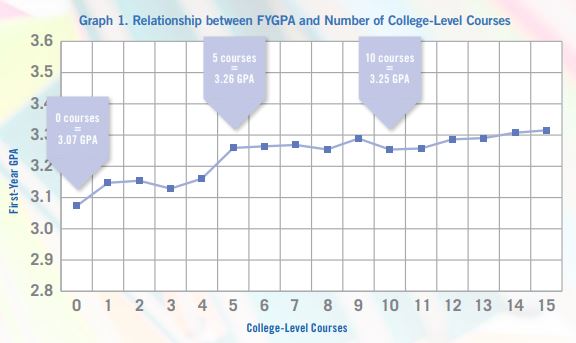If I had one wish, it would be for high schools to eliminate half of their Advanced Placement courses.🧵
As test optional admissions shifts the focus onto course selection and grades, we need to be intentional to not replace the testing arms-race for an emphasis on number of AP/Dual Credit/IB/Honors courses or extra-curriculars.
I recently got an email from a high school thinking of cutting some of their 30+ AP/Honors classes. They are admirably trying to address issues of equity within their courses while trying to address concerns about their students not being as competitive for admission.
Context matters. There are HUGE variations in curriculum, rigor, and GPA weights across high schools. Just look at the differences in English course titles at Illinois high schools from this year's applicants. 

In every parent night I've ever done, I've been asked, "How many AP classes should my student take?" Parents want a number.
AP/Dual Credit/IB classes are great ways for students to prepare for the academic rigors of college, but there is a tipping point.
Beard et al. (2019) suggest that taking one AP class improves first-year grades and likelihood of degree attainment, but improvements top out at 4-6 AP classes. onlinelibrary.wiley.com/doi/abs/10.111…
Similarly, @UNCAdmissions (2013) identified a tipping point of diminishing return in first-year GPA after taking 5 college-level courses in high school. files.eric.ed.gov/fulltext/EJ101… 

We can't just encourage students to only take 5 AP classes. As long as the courses are offered, I will quote @taraMaustin here, "calling something optional doesn't actually make it so." How can colleges better communicate our expectations for course rigor?
Some students feel pressure to stand out among their peers by taking as many rigorous classes as possible. In doing so, there is a very real trade-off on students' mental health.
I'm not saying AP classes are bad. I would love to see some schools given more resources to expand AP/Honors to help close gaps in math and science preparation. After all...
...the State of Illinois holds the dubious rank of being the most inequitable in the U.S. for K-12 funding, where differences in ed spending (from property taxes) accounts for 83% of the variation in academic proficiency levels across grade levels. ler.illinois.edu/wp-content/upl…
I'm just saying, students do not need to take Multivariate Calculus or Differential Equations in high school. Even if students can handle it, building a solid math foundation is far more important for future success. Those classes will be available once students get to college.
Holistic admissions considers the degree of rigor attempted by a student in relation to other students at that same high school, based on what level and quantity of rigor *is available* at the school.
Offering fewer AP classes shifts the onerous task to the colleges to perform more careful review of context without the crutch of number of AP classes as a sorting mechanism.
I would implore high schools to do a deep dive into their AP/Honors offerings and explore differences in who gets the opportunity to take these classes.
I bet you will find that more is not necessarily better.
• • •
Missing some Tweet in this thread? You can try to
force a refresh










